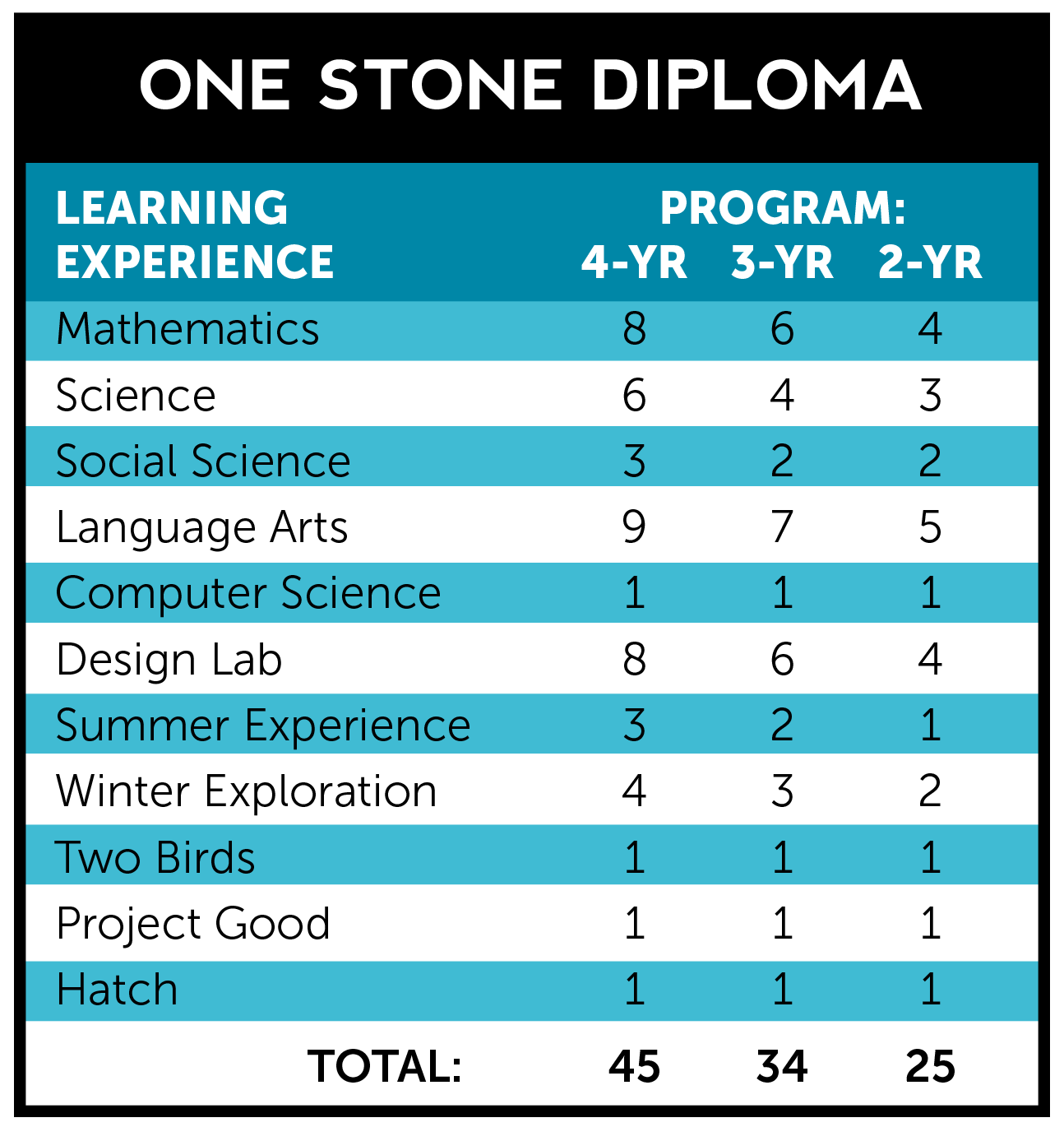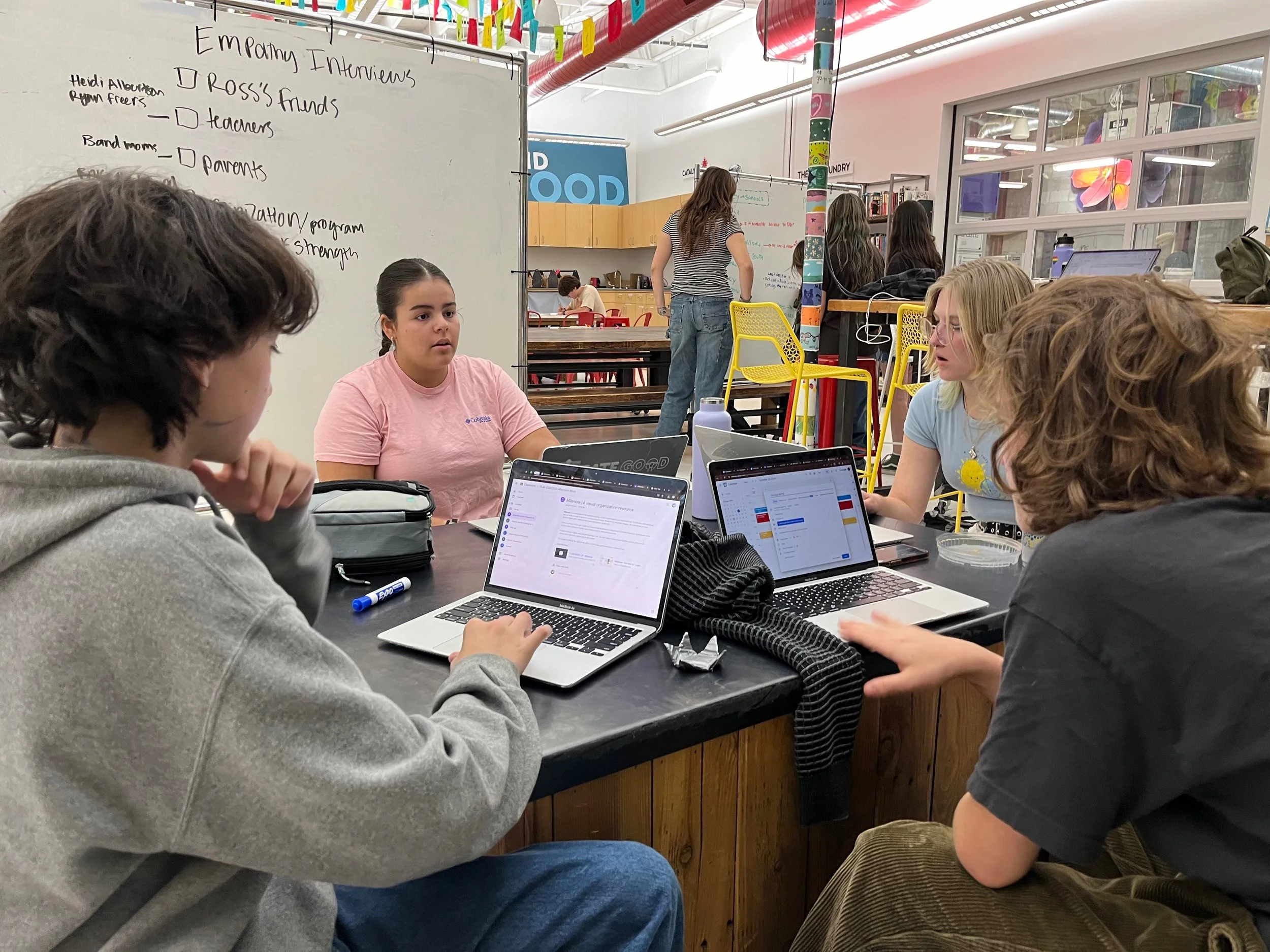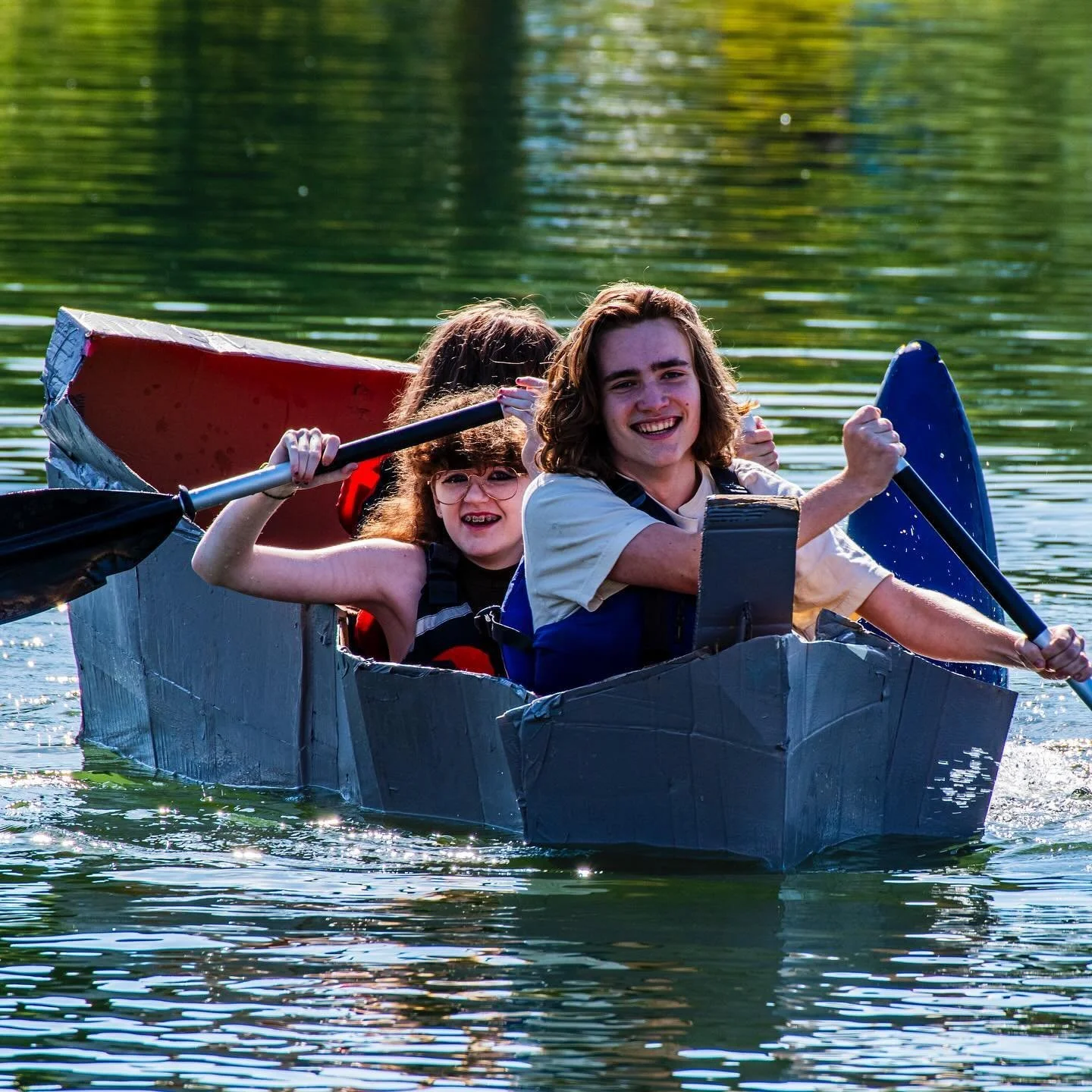Reboot Week: Held for learners new to the One Stone’s premier high school, this is a week-long program to shift mindset from old ways of learning to innovative and alternative One Stone way. The focus is on One Stone values, community, reflection, and design thinking, while building trust and rapport with students redefining each adult’s roles as a mentor or coach with a diverse set of personal passions and areas of professional expertise, not as a lecturer or teacher of content and information.
Ripple Studios: One Stone’s student-driven audio recording studio, where students perform, play, and develop audio engineering and technical skills. Through experiential learning opportunities, students in Ripple often engage with or perform for members of the community. Past Ripple performances have included a custom setlist requested by residents of an assisted living home and by SPED students at a local elementary school.
Rise: Voice of a New Generation: Created by Jon Long, Rise is a feature film about One Stone, “one of the most progressive schools in America. If these kids are the future, the future is bright.”
Shark Fin: A nonverbal gesture of agreement—one hand held out front and wiggled like a swimming shark. A silent form of communication symbolizes agreement.
Silent Storm: A timed, silent brainstorming technique, often effective with a group who is more introverted. To stage a Silent Storm, a group of people gather in a circle. Each person receives a blank piece of paper and is given a few minutes to write an answer/idea to a prompt. After a few minutes, the paper is silently passed to the person to the right or left. This is repeated until the paper goes around the circle and finds its way to its original owner.
Spark Pack: A pack of cards with games and exercises designed to inspire creativity, create focus, build teams, and idea sharing. One Stone’s Spark Pack is now included in the Design Toolbox.
Spring Trips: Every year in late April or early May, One Stone students participate in overnight outdoor trips. Past trips have included backpacking in the Owyhees, camping at Hells Canyon, Bruneau Sand Dunes, City of Rocks, and guided day trips on the Payette River. Spring Trips are an excellent opportunity for students to learn about geology, geography, and history of Idaho, while practicing outdoor leadership and Leave No Trace.
Staff: The preferred term for employees at One Stone. As a nonprofit, One Stone has a staff, not a faculty.
Staff Retreat: Taking place in mid-August each year, the staff retreat is a time for One Stone staff to gather and learn from one another. Typically held on campus and offsite for a night or two, staff engage in a mixture of annual goal setting and strategic planning, fun activities, presentations, and facilitated workshops.
Stanford d.school: An interdisciplinary learning program rooted in design thinking. The design thinking process was developed at the d.school by Stanford Professor David Kelley, who later founded IDEO. The official name of the school is The Hasso Plattner Institute of Design at Stanford.
Sticky Note Throwdown: A rapid-fire, active brainstorming session where each person writes down as many ideas as possible on sticky notes. The goal is quantity. Participants shout out their ideas as they throw them down. Any and all ideas are encouraged with participants deferring judgment.
Summer Experience: An experience that allows learners to explore passions, occupations, and skill development in a professional or academic setting. The experience can be a wide range of things from internships, jobs, trainings, and conferences. In advance of the summer, students develop a professional resume, a cover letter, and prepare for interviews.
Summer Wrap-up: An opportunity for learners to reflect and celebrate their learning during their Summer Experience. Each learner presents to the One Stone community. This is also an opportunity for returning students to contribute to planning the year ahead.
Student-driven: One Stone is a student-driven organization. This means that students take ownership of their own learning experience. At One Stone, this is seen throughout the organization from governance (two-thirds majority students), to academics, to outside programming, and more.
Student-driven learning: Student-driven learning is designed by students in collaboration with their coaches and mentor. With students in the driver’s seat, they determine the goals for learning and propose the scope of work to be completed and the methods of assessment. This creates ownership in an area of curiosity or passion, while working independently at a level and pace that is conducive to the overall learning experience.
Student-led portfolio presentations:This end-of-the-term presentation is led by the student with the learner’s parent(s)/guardian(s), and mentor. The review includes the sharing of the learner’s portfolio of growth and reflection on the term.














